For AARPers about to Rock (We Salute You)
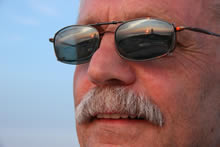
How else should an organization for retirees recruit the baby boomers—the first of whom began to turn 60 this year—than by affecting the spirit of Rock and Roll?
The NY Times ran a big feature on Sunday on the
AARP’s efforts to become cool for a generation that has spent its entire adulthood pining for the halcyon days of youth. (Link goes to the Herald Tribune, because of the NYT’s annoying habit of charging for access.)
The key to the AARP’s strategy is partnering with musicians boomers love, like James Taylor. Next year they plan a broader music-recommendation website.
Here’s the best quote, from a 48-year old in Nashville:
"Our generation has always been a little revolutionary. We feel like we're in middle age. We're out bike riding, running businesses. Our kids are fully grown, and we're kind of footloose and fancy free."
There’s nothing revolutionary about the AARP. The American Association of Retired Persons is the biggest and most powerful lobbying group in America. It is a notoriously fierce and feared adversary for legislators.
I don’t think this woman is thinking of revolution in the Chairman Mao sense – she’s thinking of Woodstock and love-ins. She’s thinking of perpetual coolness. And she (probably rightly) thinks that AARP membership would seriously undermine her cool.
The problem is that she seems to connect cool with youthfulness, like riding bikes and being footloose. So her resistance to AARP membership lies more in her denial of the sands of time than in any doubts about AARP’s status as revolutionary. It’s old age itself that she hates the thought of.
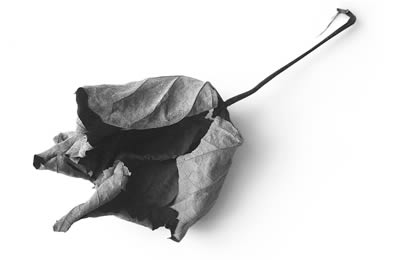
And that’s a crying shame. We can’t stop time. Aging is central to the human experience. For years now we’ve heard about baby boomers’ impending reinvention of retirement, but even the most important generation in American history (not a value judgment; that’s a fair assessment) can’t reinvent something as basic as getting old and dying. Nope.
So the only life-giving answer is to come to terms with each new season in life, including the last season before death.
In
my book I argue that the most meaningful reconciliation is with our own parents. As we younger adults assume our adult stations in life, we’re going to face a huge spiritual burden: reaching out and blessing elderly boomers devastated by the reality of old age. It will be a huge effort of compassion, and not condescension, on our part.
In our time we have the power to undo our culture’s contempt for the elderly, and we can start by loving those boomers too “revolutionary” to join the AARP.
Labels: aarp, baby boomers, rock
What is Christian Humor?
More on Borat. I was telling my supervisor about the movie, and about my conclusion (
November 17) that Sacha Baron Cohen was
- A brilliant comic and
- A cruel comic.

What ensued was a very interesting conversation that left me confused and curious. I’d love to hear folks’ opinions on this one: What is/would be the foundation for Christian humor?
We both agreed, probably unjustly, that we’d have very low expectations for Christian comedy. It’d either be cheap slapstick, inoffensive word jokes, or saccharine inspirational stories.
But we also agreed that blandness would be a function of the greater blandness in much of North American Christian subculture.
What do y’all think? I mean this in the deepest sense possible. Because God both promises us, and demands of us, joy. The Bible features a man named Laughter, a laughter that comes out of a surreal inversion of bitterness (his Hebrew name was Isaac).
Frankly, if laughter has no place in the Christian life, there very little that would be compelling about this life. But I know there is laughter here, and I know deep down that it doesn’t have to be as cruel as Borat’s humor.
But what is it?
Stinky Cheese is Stinky Cheese
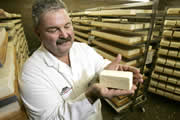
The nation's only maker of Limburger cheese is making a comeback,
according to Myron Olson, the owner of Chalet Cheese factory. Which means sales are up by a third in recent years.
Have any of you tried Limburger before? It is the worst-smelling thing in the universe. It can be quite tasty if you overpower it, in a horseradish mustard/raw onions/rye bread sandwich, with liver sausage on the side. It's true. It works. But it's not for the weak of heart. My dear wife caught me on film the first time I ever tasted Limburger cheese. This is not acting; it actually tasted that way:

Limburger Cheese Originally uploaded by Paul Grant.
It sounds like a bit of Limburger's revival comes from people's desire to be cultured. Olson says: "When you talk Limburger, right away people turn their nose up. But if you give it a fancy French name people are, 'Oh, what is that?' And then they'll try it and realize it's a stinky cheese, but boy, that's a good piece of cheese."
I hope I'm not subject to cheap ploys like that. Let's call a stinky cheese a stinky cheese. Of course acquired taste can be part of enjoying cultural heritage. But forcing something down to be trendy contains its own punishment.
Labels: cheese, culture, limburger
Borat
Becca and I went to a motion picture last night. I remember those. It was the first time we’d gone since HE was born.

Anyway. We saw
Borat. Borat is a movie-length treatment of a stock character on a British comedy show. The titular character is a clueless Kazakh journalist roaming about the United States, or “the U. S. and A.” as he calls it. Borat is a fictional character, done by a very wise and worldly comedian—Sacha Baron Cohen, an Cambridge-educated devout Jew.
There are two main jokes to the movie, and neither is the real reason for the movie’s popularity. First is Borat’s awkwardness, his uncouth, naïve, anti-Semitic, pre-feminist, pre-modern ways. In one scene he flees a Bed-and-Breakfast owned by Jews, because he’s terrified they’ve shifted shape to unknown monsters. In another he plays gawky white boy to some unsuspecting black teenagers in Atlanta, telling one short, overweight and dark-skinned kid he looks like Michael Jackson.
The other primary joke is Baron Cohen’s tricking unsuspecting Americans into making fools of themselves. In fact, most interviewees rolled with the punches, and silently resisted his philistine bait. In that sense, Baron Cohen mostly failed in his attempt to make fun of everyday conservative Americans.
Borat - TrailerThe real attraction behind Borat is the hip, insider experience the viewer gains from watching the movie. The word
hip derives from a West African word meaning “to see farther (than others)”. Watching Borat is
hip, in this sense, because of the secret shared between the comedian and the audience. We know something the victims don’t. That makes us cool insiders, and that makes us feel good and superior to them.
Coolness requires outsiders, and those outsiders are the dinner party hosts, the Pentecostals, the cowboys, the politicians and the small-town businessmen Baron Cohen provokes. None come off as buffoonish as Borat himself, so the primary joke doesn’t work all that well. All that’s left for the viewer is the feeling of being superior. I believe that cool, insider feeling is the primary attraction for the movie.
One more comment: for all the discussion about stupid Americans, the real victims of Baron Cohen’s contempt are actually the eastern European peasants he portrays as incestuous barbarians. Ostensibly Kazakhstan, the scenes were actually filmed in Romania. It seems Baron Cohen found the poorest village in Europe, put livestock in people’s living-rooms, and called the villagers rapists. The Americans he only provokes, hoping their foolishness would speak for itself. But the Romanian peasants don’t get a chance to prove the Englishman wrong. They have to suffer another humiliation on top of their poverty.

Labels: borat, films
167,000 of my best friends

As of this morning, Johnny Cash’s Myspace page has nearly 167,000 friends. That's more than the population of Tallahassee, Florida. Not bad for a man who died the summer Myspace was launched.
One way of proving your hip credentials is claiming to have loved someone before he was big. Well, I have to admit that I loved Johnny Cash after seeing him in a packed arena. No hip-points for me.
I am not sure why Cash is so popular. I love Cash, but it’s his person, not his music (not very interesting) or his voice (raspy baritone). Cash has the air of a survivor, of someone who didn’t waver, even when the hit-making machines hated him—and when he was producing awful music. People also love his love story with June—a countercultural love for its endurance.
Another aspect of the Johnny Cash phenomenon is his maturity. There is a really healthy movement in contemporary culture of increasing respect for old people. Johnny Cash acted his age, unlike, say, Mick Jagger, who is a dirty old man wishing he were a rakish young man.
Of course, it’s cool to dig an old person who’s on Myspace. Especially one we don't really know. What would be even more meaningful would be to rebuild relationships with the old people in our own lives.
Labels: music, myspace
Glocal Cool
Cool and its accompanying fashions are deceptive: What may appear to be wholesale cultural appropriation may be a more subtle egagement. People in other parts of the world adapting American styles, for instance, may ...
1. Do so with little awareness of the nuances of the original;
2. Be doing something entirely new, that those stuck in the source-country's paradigm might not catch; and
3. Might be adapting styles yet still have utter contempt for the original artists.
In other words, just because they rap in France doesn't mean the rappers want to be Americans. Nor does it indicate any racial solidarity with African American rappers.
Basel, Switzerland has had a vibrant hip hop culture since the early eighties, including some of the best murals in Europe. Here's a recent clip I found on Youtube.
These are scenes from around town. When you take a train into town from the east, you go past these amazing galleries of graffiti murals. At first glance it looks like Basel is a cultural colony of New York.
But Basel also has an ancient artistic culture surrounding Carnival, or Fasnacht as they call it.
Compare the graffiti writing on display in the Youtube video, with the style of painting on the Carnival lanterns. I'd argue that the two have more in common than either does with the hip-hop culture of New York.
Culture is usually deeper than we give it credit for. Culture, of course, is related to history, and history is mostly rejected by cool in favor of the eternal present.
When we see people living in culture, and smearing coolness on top of it, we should be very slow to draw conclusions about their coolness. After all, cool is usually a hobby for people, or a crutch they fall back on. But culture is what they want their children to learn. Culture is what they want at their deathbed.
Culture - and belonging - not cool, is what most people really, really want.
Labels: cool, culture, graffiti, switzerland
Robert's Quest to be Cool
I love this kid. He's got a series of videos deconstructing cool--cool as it appears in his high school world. I mean it. Not just in an anti-cool sort of way. He's pretty insightful.
This one is my favorite to date. Skip to around 2:45 for his entry on sunglasses.
Now, I know better than to buy that Robert is who he says he is. Not that I doubt him, but after
lonelygirl15 was exposed as a farce, you have to withold judgment.
Anyway, Robert is a 15 year-old. In other shows he has discussed whether playing a guitar makes one cool (no), or liking rap music (inconclusive), or being able to bend spoons with your mind (nope).
Labels: cool, youth culture, youtube
Black Gold, Cool Tinsel
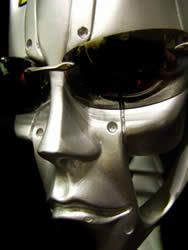
I’ve been reading the best book I’ve ever found on cross-cultural belonging. Ekow Eshun is an Englishman of Ghanaian ancestry, and his book
Black Gold of the Sun recounts a journey he took to Ghana, looking for … something. He spends half the trip trying to figure out exactly what it was he was looking for, and the other half learning things about his family he wasn’t expecting.
What pushes Black Gold of the Sun beyond the level of travel literature and memoir is his cultural criticisms of the meaning of British blackness, especially British Africanness contrasted with British West Indianness and African-Americanness. The sounds of his childhood were American, African American. Eshun was the son of Ghanaian diplomats, but most African Americans are the descendents of West African slaves. Still, it is the African Americans who managed to create a critical consciousness of blackness in England.
Eshun spent much of his childhood—lived among racist white kids and worse Jamaican kids—wondering where he came from. When he went to college, he discovered the use of cool to bury it all:
Many students try to cut a dash through their first year with the help of an experimental haircut, a new-found political conviction, or some other affectation … Everyone was looking for a new identity.
As for me, I favoured omission rather than reinvention. By shrugging off queries about where I’d grown up or gone to school, I realized I could erase the past. Even the question that had dogged me all through my life became unimportant.
‘Where you from, man?’
‘London.’
‘Cool.’
Eshun develops this thought then concludes:
Not without pride did I consider myself as a self-made man; an outsider turned insider … I’d snubbed history and triumphed. That was the plan, anyway. Later, I realized that by denying the past I risked making myself its prisoner. By then it was too late, though. I’d already been trapped. … I’d spend most of my life afraid to get too close to anyone. At [University] I told myself I was being cool.
This notion - that cool is worse than a weak crutch, that it keeps us from living whole lives - lies at the center of my book.
Labels: africa, books, britain, culture
 How else should an organization for retirees recruit the baby boomers—the first of whom began to turn 60 this year—than by affecting the spirit of Rock and Roll?
How else should an organization for retirees recruit the baby boomers—the first of whom began to turn 60 this year—than by affecting the spirit of Rock and Roll?







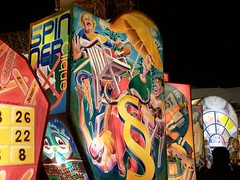
 I’ve been reading the best book I’ve ever found on cross-cultural belonging. Ekow Eshun is an Englishman of Ghanaian ancestry, and his book
I’ve been reading the best book I’ve ever found on cross-cultural belonging. Ekow Eshun is an Englishman of Ghanaian ancestry, and his book  Author and Speaker
Author and Speaker
